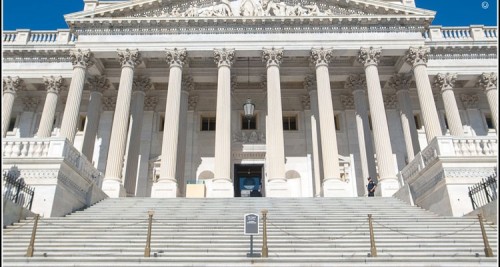By Kim Morrison, World Casino News
H.R.511 gains momentum as members of the House Committee on Education and the Workforce attend the July 22, 2015 markup session which was packed with members of the National Indian Gaming Association in Washington, D.C., for a legislative summit.
The Act which exempts tribes and their casinos from the National Labor Relations Act (NLRA), the Tribal Labor Sovereignty Act was passed on Wednesday at the short markup session on Capitol Hill.
According to the Chairman of the Committee, Rep. John Kline (R-Minnesota) who introduced the bill, “it’s not about big business versus big labor and it’s not about Republican versus Democrat.”
Kline went on to add that “the bill we are considering today is about whether Native Americans should be free to govern employee-employer relations in a way they determine is best for their workplace.”
In what Rep. Todd Rokita (R-Indiana) described as a “bipartisan, commonsense proposal that will provide legal certainty to the Native American community,” the Act would exempt tribes and their casinos from the National Labor Relations Act (NLRA), and prohibit the National Labor Relations Board from asserting jurisdiction at those businesses.
Rokita also went on to state that the Act would give authority back to tribal leaders and end the National Labor Review Board’s (NLRB) overreach, and restore the standard that was in place long before the National Labor Relations Board made the misguided decision to change course. An amendment in the nature of a substitute to clarify that tribal governments are also exempt from the NLRA, was offered by Rokita.
Opposition to the Sovereignty Act was voiced by the only Democrats present, Rep. Mark Pocan (D-Wisconsin), Rep. Joe Courtney (D-Connecticut) and Rep. Ruben Hinojosa (D-Texas), who accused Republicans and their allies of using tribal sovereignty as a smokescreen to attack the NLRB.
Representative Pocan accused proponents of the bill, such as the U.S. Chamber of Commerce, of endorsing the bill in an attempt to help destroy the NLRB rather than support for the sovereignty of the tribes.
The three also noted that most employees of tribal casinos are non-Indians and argued that the bill will degrade labor standards Indian Country.
Although it hasn’t been taken up by the full Senate, on June 10th the Senate Indian Affairs Committee approved S.248, its version of the bill which is gaining traction among lawmakers from both parties.
At that legislative summit which opened Tuesday on Capitol Hill (hosted by the National Indian Gaming Association (NIGA)), Sen. Heidi Heitkamp (D-North Dakota) stressed that every conversation about gaming should begin by stating that gaming is not something that the federal government authorized you to do, but a sovereign right.
She added that, “If the Indian Gaming Regulatory Act went away tomorrow, you would still be able to conduct gaming,”
Exemption from the NLRA has been sought after by the tribes ever since a 2004 ruling in which the NLRB asserted jurisdiction over Indian Country for the first time in decades, but efforts to address the issue ran into serious opposition from Democrats and their labor union allies at that time.
Since that 2004 ruling, tribes have won support from key Democrats by pitching the issue as one of parity with other governments, and with Republicans in control of the House and Senate, the bill has moved quickly in the 114th Congress.
The bill would resolve uncertainties like the one that arose in early June when the NLRB declined to assert jurisdiction at the WinStar World Casino and Resort, a casino owned by the Chickasaw Nation of Oklahoma, citing the tribe’s treaty-protected right to self-governance.
Less than a week later, the 6th Circuit Court of Appeals backed the NLRB’s jurisdiction over the Little River Casino and Resort, a casino owned by the Little River Band of Ottawa Indians in Michigan, and three weeks later, expressing serious doubts about the application of the NLRA in Indian Country, the same court rejected the treaty claims of the Saginaw Chippewa Tribe, also in Michigan.
The U.S. federal law that establishes the jurisdictional framework that governs Indian gaming, the Indian Gaming Regulatory Act (IGRA), has been a source of extensive controversy and litigation since it was passed in 1988.


